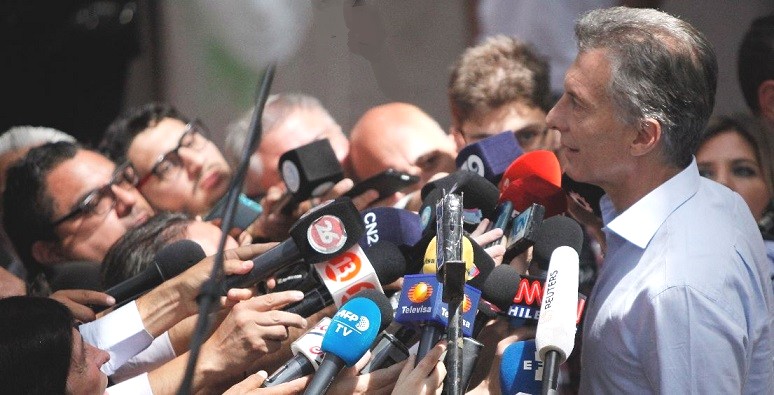
The morality of paradise
The leaking of documents that reveal the identities of executives of companies incorporated in Panama exposes the moral problem posed by government authorities who operate in “fiscal paradises” — tax havens.
To show the gravity of the problem, it is important to remember that today nobody argues that operating in tax havens is “legal,” if by “legal” we understand actions that adhere to official standards.
When British Labor leader Jeremy Corbyn accuses Prime Minister David Cameron of betraying the British people’s confidence, he is not suggesting that the PM acted illegally. No, the main problem is that Cameron, in addition to not making public his participation in offshore companies, did what any citizen who pays taxes would not wish to see — his leaders failing to pay taxes.
In sum, we return to the classical distinction whereby that which is legal is not necessarily good or desirable. And this applies to Argentine President Mauricio Macri (in photo above), as well as any other government involvement in tax havens.

The core of this disassociation is that tax havens are financial centers that, in exchange for a fee, offer a very prized product: their sovereignty. In other words, tax havens are sovereign jurisdictions — they operate as nations — whose particularity is that they produce legislation that is not directed at their own citizens but to residents in other countries.
Thus, foreign citizens can create perfectly “legal” enterprises, protected by ironclad laws that conceal the identity of their owners.
The 56 tax havens that now exist in the world — including Switzerland, the City of London, Panama, several U.S. states, Hong Kong and many tiny islands — offer to an army of accountants, lawyers, and financiers special regulations that allow them to minimize taxes, conceal the ownership of enterprises and thereby hide the origin of financial capital.
Tax havens such as Switzerland enforce penal laws in cases of violation of banking secrets.
The explanations offered by President Macri have stressed the legality of his acts. He is a member of the board of companies structured in countries that make their laws available for such purposes.
However, the explanations offered (certainly concocted to satisfy a public that’s ignorant of the gravity of the problem) elude the well-known fact that offshore partnerships structured in such jurisdictions serve, at the very least, to legally avoid paying taxes.
Today, a countless number of banks and companies — from Starbucks to Apple to Uber and Airbnb — operate in tax havens. However, despite the fact that operating these entities promotes inequality because they don’t pay taxes in the countries where they operate, their actions are not comparable to a government’s.
To the degree that a government has the obligation to provide goods and public services financed by the taxes of its citizens, for the president of a country to be an owner of companies that shirk taxes constitutes a problem that — far from being “legal” — directly violates the public trust.
Matías Dewey is a researcher at the Max Planck Institute for the Study of Societies, in Köln, Germany.
(From the Argentine newspaper Página 12.)


